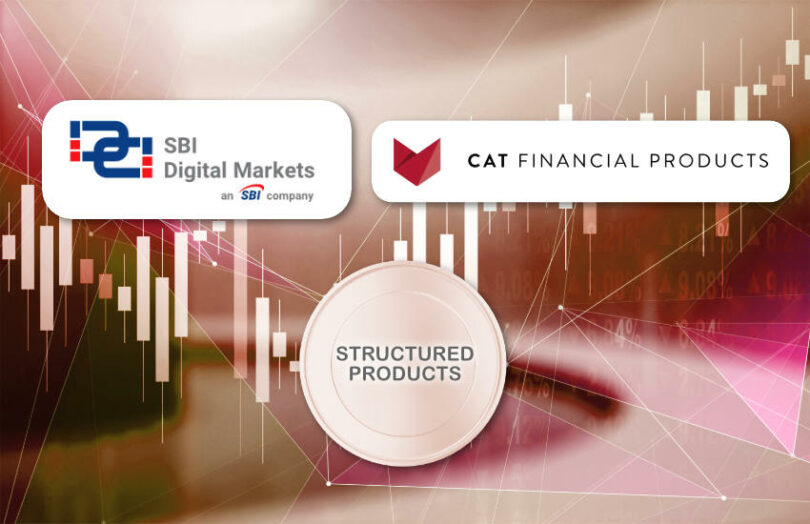Today SBI Digital Markets (SBIDM) announced a collaboration with Switzerland’s CAT Financial Products (CATFP), which operates a structured products technology platform and is also an issuer. CATFP has worked with asset managers, banks and institutional investors since 2008. SBI Digital Markets is part of SBI Digital Asset Holdings and provides tokenization, digital asset custody and advisory services.
The two parties want to work together on issuing and distributing structured products between Switzerland and Asia.
Stepping back, structured products tend to be bespoke securities, often with derivative-like features. They have low margins and are commoditized. Hence, issuance efficiencies are critical. Since the Deutsche Börse launched its digital securities issuance platform D7, it has primarily been used for structured product issuances at scale – 15,000 in the last few months. The reason is the issuance efficiencies. HSBC has also explored blockchain for structured products as part of Project Guardian.
CATFP has a structured products lifecycle management platform, CUGLOS, which SBIDM is integrating with its own tokenization platform. Together they plan to roll out the first structured products in Switzerland, Europe and Asia in the coming months.
“This partnership strengthens our structuring capabilities, boosts our product offerings and provides our clients with access to innovative investment opportunities,” said Winston Quek, CEO of SBI Digital Markets. With CAT Financial Products’ established reputation and capabilities, our partnership will allow SBIDM to increase our product capabilities and distribution network.”
On the distribution side, the SBI Group is one of the biggest players in Japanese securities, so it can help expand CATFP’s reach. Likewise, CATFP has distribution capabilities in Switzerland and Europe. Both are regulated entities: SBIDM in Singapore and CATFP has a securities license from Switzerland’s FINMA.
When we interviewed Mr Quek late last year, he highlighted four areas of interest for tokenization. Real estate and private equity are asset classes where tokenization can lower the barriers to entry. With tokens, wealthy investors can commit smaller amounts than they might otherwise have to, making these asset classes more attractive. He identified two other areas where blockchain can bring operational efficiencies: bonds and structured products.






